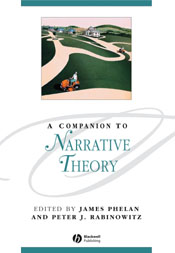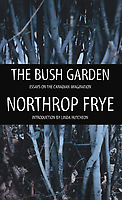In response to the recent “Frye and Bakhtin” post, some thoughts from Michael Sinding, author of Body of Vision: Northrop Frye and the Poetics of Mind (University of Toronto Press, forthcoming):
Following up on Joe Adamson’s excellent post, I second his final point about the need to explore the implications of the intersections of Frye’s and Bakhtin’s thought. (There was some discussion of Frye and Bakhtin at the recent centenary conferences in Budapest and Toronto, and of Frye in comparison with other major genre theorists Claudio Guillen and Franco Moretti, but more needs to be done.)
To that end, I’m doing some work on Frye’s relation to narratology these days. It seems to me that Frye and Bakhtin have a similar odd status with respect to narratology: they are very often drawn on in studies of particular genres, studies of relations of texts to genres, and in genre theory; yet despite their enormous importance for literary criticism, they are not part of the mainstream of narrative theory per se. Narratologists seem uncomfortable with their claims about large-scale patterns and continuities in narratives. More on this later.
I started thinking about this recently when reading through the introductory chapters of the Companion to Narrative Theory edited by James Phelan and Peter Rabinowitz (available online through my university library; maybe yours too). The Companion begins with two excellent histories of narrative theory, one by David Herman and one by Monika Fludernik. Then there is a powerful essay by Brian McHale on the elision of Bakhtin in the two preceding histories. McHale writes,
author of (among other things) two landmark works of narrative theory, and implicated somehow or other in the production of a third, Bakhtin (1895–1975) is certainly the most ubiquitous narrative theorist of the last quarter of the twentieth century, and arguably one of the most influential. He is the one narrative theorist about whom every graduate literature student is certain to know something, even if he or she knows nothing else about narrative theory. Nevertheless, Bakhtin is conspicuous by his near-absence from both Herman’s and Fludernik’s histories of narrative theory — complete absence in the case of Fludernik, scant mention in the case of Herman. How did everyone’s favorite narrative theorist all but vanish from history — or at least, from these histories?
Although McHale is right that Bakhtin is very much downplayed in the two histories he refers to, neither he (McHale), Herman or Fludernik mentions Frye at all. This is another enormous oversight. It might be an even larger oversight than the slighting of Bakhtin, if Frye’s influence on literary criticism and theory, and other areas of narrative study, is greater than Bakhtin’s, which it might be. Think of Frye’s influence on literary narratology via Tzvetan Todorov and Jonathan Culler (both mentioned by Herman) and on history via Hayden White and psychoanalysis via Roy Schafer (both mentioned by Fludernik). (Incidentally, one wonders how to measure this kind of “influence.” McHale registers one important way when he talks about what “every graduate literature student is certain to know”. Frye was part of that common knowledge a couple of decades ago.) McHale even says in a footnote that there is another critic who is important enough that his invisibility in (these versions of) narrative theory could be compared with that of Bakhtin—and that critic is Kenneth Burke:
Nor is he the only the figure to slip through the cracks in this way. Alan Nadel suggests (personal communication) that Kenneth Burke presents a problem comparable to that of Bakhtin. This is true, but only up to a point; Bakhtin’s belated currency and astonishing ubiquity has no parallel in the Burke case.
It’s astonishing to me that a narratologist as knowledgeable and talented as McHale could pick up on the elision of Bakhtin and Burke in histories of narratology, and yet completely overlook Frye. I suppose there are various reasons for this, but I won’t start getting into them at the moment. I’ll just say that if McHale is right that Bakhtin is “a specter … haunting narrative theory”, then Frye must be a specter of a specter. It struck me that while contributors to this blog offer helpful “Frye sightings”, it might also be worthwhile to talk about “non-sightings” such as the one I’ve described.
Works Cited
Fludernik, Monika. “Histories of Narrative Theory (II): From Structuralism to the Present.” A Companion to Narrative Theory. PHELAN, JAMES and PETER J. RABINOWITZ (eds). Blackwell Publishing, 2005. Blackwell Reference Online. 14 November 2012 <http://www.blackwellreference.com/subscriber/tocnode.html?id=g9781405114769_chunk_g97814051147694>
Herman, David. “Histories of Narrative Theory (I): A Genealogy of Early Developments.” A Companion to Narrative Theory. PHELAN, JAMES and PETER J. RABINOWITZ (eds). Blackwell Publishing, 2005. Blackwell Reference Online. 14 November 2012 <http://www.blackwellreference.com/subscriber/tocnode.html?id=g9781405114769_chunk_g97814051147693>
McHale, Brian. “Ghosts and Monsters: On the (Im)Possibility of Narrating the History of Narrative Theory.” A Companion to Narrative Theory. PHELAN, JAMES and PETER J. RABINOWITZ (eds). Blackwell Publishing, 2005. Blackwell Reference Online. 14 November 2012 <http://www.blackwellreference.com/subscriber/tocnode.html?id=g9781405114769_chunk_g97814051147695>

